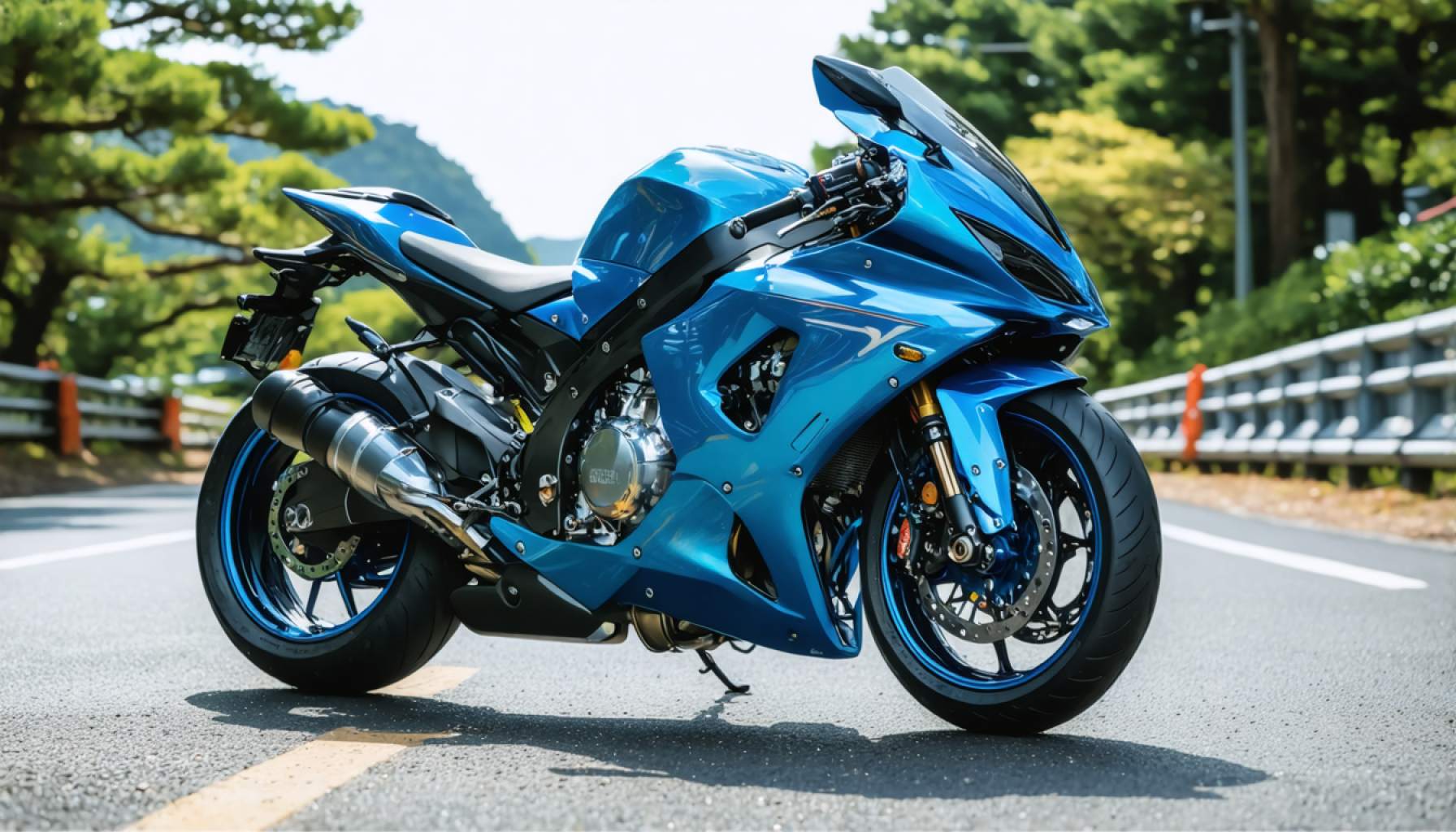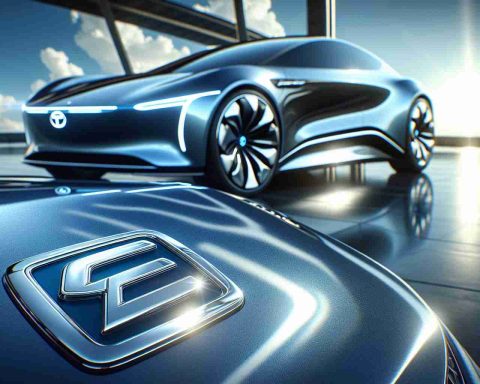- Japan’s leading motorcycle brands—Honda, Yamaha, Kawasaki, and Suzuki—have joined forces to form the Hydrogen Engine Consortium, focusing on hydrogen-powered motorcycles to reduce carbon emissions.
- This initiative seeks to transform motorcycles into low-emission, sustainable vehicles, leveraging hydrogen as an alternative to gasoline for cleaner transportation options.
- Honda R&D is conducting experiments aboard the International Space Station to explore material science, potentially revolutionizing hydrogen storage and fuel cell endurance.
- The Consortium faces challenges, such as developing hydrogen supply chains and refueling networks, but sees these as opportunities for engineering innovation.
- Efforts include creating portable refuel stations and lighter hydrogen tanks for enhanced motorcycle design and performance.
- The collaboration signifies a pivotal moment for sustainable transport, with implications for various sectors including marine and household energy systems.
Revolution is on the throttle as Japan’s top motorcycle brands—Honda, Yamaha, Kawasaki, and Suzuki—have united to pursue a daring dream: to navigate the silhouette of our future streets with hydrogen-powered motorcycles. This audacious alliance, known as the Hydrogen Engine Consortium, stands at the crossroads of innovation and urgency as Japan commits to reducing carbon emissions and decarbonizing its transportation landscape.
Picture the familiar roar of a bike engine, yet its underbelly carrying not the polluting innards of gasoline, but the clean essence of hydrogen—a whispering promise of a greener tomorrow. The Consortium aims to transform motorcycles, which have lagged behind their four-wheeled counterparts in the green revolution, into sleek emissaries of sustainability. These titans of industry are pooling decades of engineering expertise to carve a new path: hydrogen-powered engines tailored specifically for motorcycles. The goal is to create low-emission two-wheelers fit for the urban gridlock and the open road alike, turning what was once a distant vision into tangible, rolling steel.
Meanwhile, Honda R&D’s ambitions stretch beyond earthly confines, reaching into the celestial realm. High above the clouds, aboard the International Space Station (ISS), they are probing the zenith of material science. By investigating the behavior of materials in the unique environment of space, Honda anticipates breakthroughs that could redefine hydrogen storage and bolster the endurance of fuel cells. The microgravity lab in space serves as an incubator for innovations that may soon change the face of mobility itself—groundbreaking improvements that could not only fortify hydrogen motorcycles but ripple across industries, energizing sectors as diverse as marine transport and household energy systems.
The Consortium’s journey is not without its trials. Building effective hydrogen supply chains remains an ambitious obstacle, and the refueling network is yet to match the convenience that motorcyclists demand. Engineering challenges are abundant, requiring fresh perspectives on engine design and material science. But these very challenges are the seedbed of ingenuity. Teams are already envisioning portable refuel stations and lighter, more resilient hydrogen tanks—a symphony of engineering tailored for the next generation of rides.
As Honda delves into space and the Consortium hones hydrogen technology on Earth, opportunities and challenges dance in tandem. The potential return from these initiatives could propel motorcycles and hydrogen technology into a new age, marking a pivotal moment in history where Earth’s allure and the cosmos’ mystery come together in the pursuit of sustainable innovation.
In the fast-spinning world of technology and transport, the balance often rests on the keen edge of innovation. Honda R&D and its allies in the Hydrogen Engine Consortium are braced on that edge, preparing to surge forward into a new era—gliding quietly, yet powerfully, toward a more sustainable tomorrow.
Hydrogen Motorcycles: The Green Revolution on Two Wheels
The Future of Motorcycles: Hydrogen Power
Japan’s leading motorcycle manufacturers—Honda, Yamaha, Kawasaki, and Suzuki—have embarked on a pioneering journey to develop hydrogen-powered motorcycles through a collaboration known as the Hydrogen Engine Consortium. As part of global efforts to reduce carbon emissions, this alliance seeks to revolutionize the motorcycle industry by introducing eco-friendly hydrogen fuel.
Why Hydrogen?
Hydrogen as a fuel source offers numerous environmental benefits over traditional gasoline. Combustion of hydrogen produces only water vapor as emissions, making it a clean alternative that can significantly reduce air pollution and greenhouse gas emissions. Additionally, hydrogen-powered engines are known for their efficiency and the potential to outperform conventional internal combustion engines in terms of power and fuel economy.
Challenges and Innovations in Hydrogen Technology
1. Hydrogen Supply Chain: Developing an efficient hydrogen infrastructure is crucial. Current challenges include establishing refueling stations that meet the needs of motorcyclists. The Consortium is exploring innovative solutions, such as portable refueling systems, which could provide flexibility and convenience.
2. Storage and Safety: A critical hurdle is the storage of hydrogen, which must be done safely and efficiently. Honda’s research aboard the International Space Station (ISS) aims to advance material science for improved hydrogen storage, hoping to develop lighter and more robust fuel cells.
3. Engine Design: Hydrogen engines require new designs tailored to the unique properties of the fuel. Engineers are tasked with creating engines that can deliver high performance while maintaining durability and safety.
Market Forecasts & Industry Trends
– Increased Adoption: With growing interest in sustainable transportation, hydrogen motorcycles may see broader adoption. According to industry analyses, the global hydrogen market is expected to grow, boosted by legislative support for green energy and advances in technology.
– Economic Impacts: Investment in hydrogen infrastructure and technology will likely drive significant economic changes, including job creation and new market opportunities in the energy and automotive sectors.
Insights & Predictions
– Cross-Industry Applications: Beyond motorcycles, hydrogen technology is poised to influence other transportation sectors, including marine and aerospace. Honda’s research in space underscores the potential for cross-industry innovations that could expand the use of hydrogen in various applications.
– Sustainability and Security: Hydrogen provides a path toward energy independence, reducing reliance on fossil fuels. As technology advances, hydrogen could become a cornerstone of sustainable energy strategies worldwide.
Actionable Recommendations
– Stay Informed: Consumers interested in hydrogen technology should follow developments from leading manufacturers and industry groups. Keeping abreast of technological advancements can help in making informed decisions about future vehicle purchases.
– Advocate for Infrastructure: Supporting local and national initiatives to build hydrogen refueling stations can accelerate the transition to hydrogen vehicles and demonstrate public demand for sustainable solutions.
– Environmental Considerations: Motorcycle enthusiasts should consider the environmental impact of their vehicles and explore alternatives like hydrogen models that align with sustainability goals.
Related Links
– Honda
– Yamaha
– Kawasaki
– Suzuki
In conclusion, hydrogen-powered motorcycles represent an exciting leap forward in sustainable transportation. While hurdles remain, the consortium’s efforts symbolize a significant stride toward a greener future. By embracing innovation, supporting infrastructure development, and staying informed, consumers can play a crucial role in this transformative journey.











